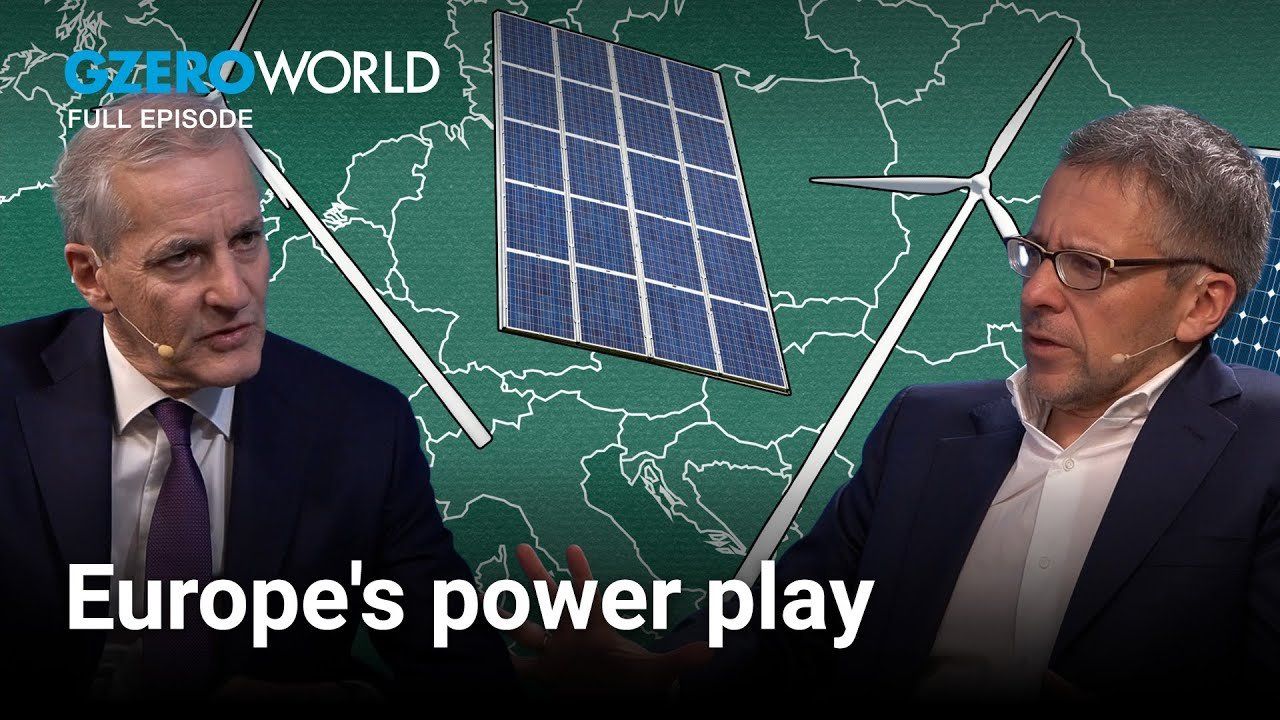
Europe's energy security hinges on Norway and its transition from fossil fuels to renewable sources. That has big geopolitical implications for Ukraine and NATO.
On GZERO World, Ian Bremmer delves into Europe's urgent quest for energy independence and the broader geopolitical shifts that could redefine the continent's future. With the specter of reduced US support for Ukraine after November’s election, Europe's resilience, particularly in energy security and military capabilities, takes center stage. Norwegian Prime Minister Jonas Støre joins Ian to discuss Norway's critical role in this transition, emphasizing the need for a swift move from oil and gas to renewables, a monumental task that Europe and Norway are determined to undertake in a remarkably short timeframe. “Norway will transition out of oil and gas. When we pass 2030, there will be declining production, and then we want to see renewables transition upwards,” Prime Minister Jonas Støre tells Ian.
Their conversation delves into the ramifications of the US election outcome on NATO and Ukraine, underscoring Europe's precarious position should American support wane. The discussion reveals the continent's vulnerability to fuel crises and the imperative for a robust energy strategy that lessens dependency on external forces, notably by severing ties with Russian fossil fuels in response to the invasion of Ukraine. “Europe's ability to assist Kyiv on the battlefield will hinge not just on military capabilities but also Europe's own energy security,” Ian explains.
This is a moment of transformation for Europe as it navigates the complexities of energy transition and geopolitical uncertainties, highlighting the interconnectedness of sustainability, security, and solidarity in facing the challenges of the 21st century.
Catch GZERO World with Ian Bremmer every week online and on US public television. Check local listings.
- Northern exposure ›
- Will Norway pull the plug on itself? ›
- Can the world run on green energy yet? Author Bjorn Lomborg argues that's very far off ›
- The Graphic Truth: Natural gas prices make EU power costs soar ›
- Norway's school phone ban aims to reclaim "stolen focus", says PM Jonas Støre ›
- With electric bills soaring, should the EU cap natural gas prices? ›
- The Graphic Truth: EU natural gas prices plunge ›
- World Bank announces plan to bring power to 300 million in Africa - GZERO Media ›